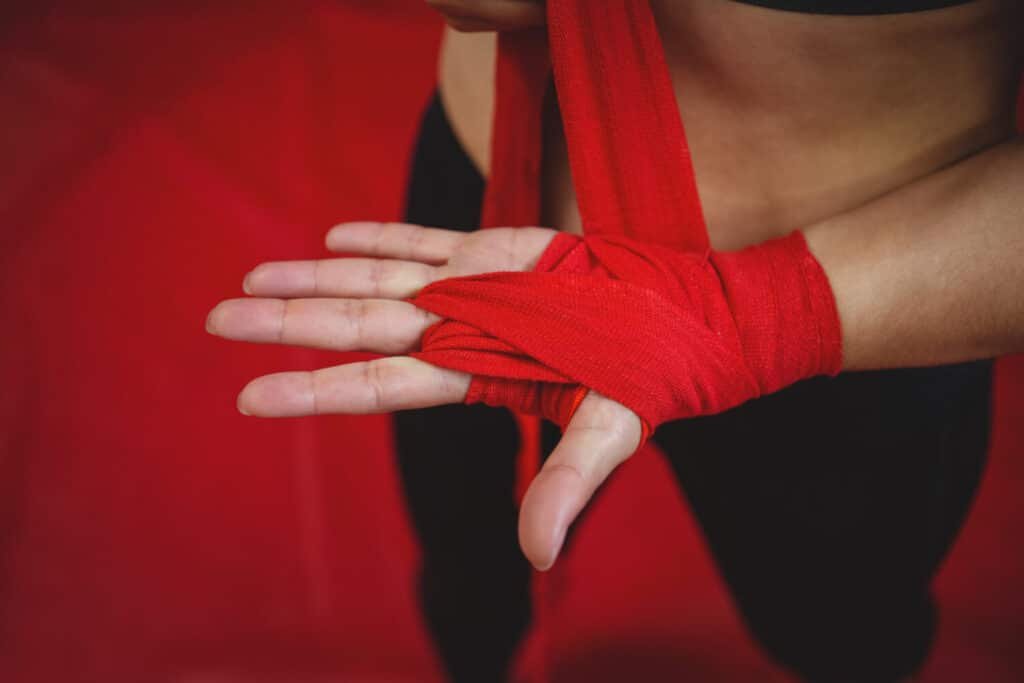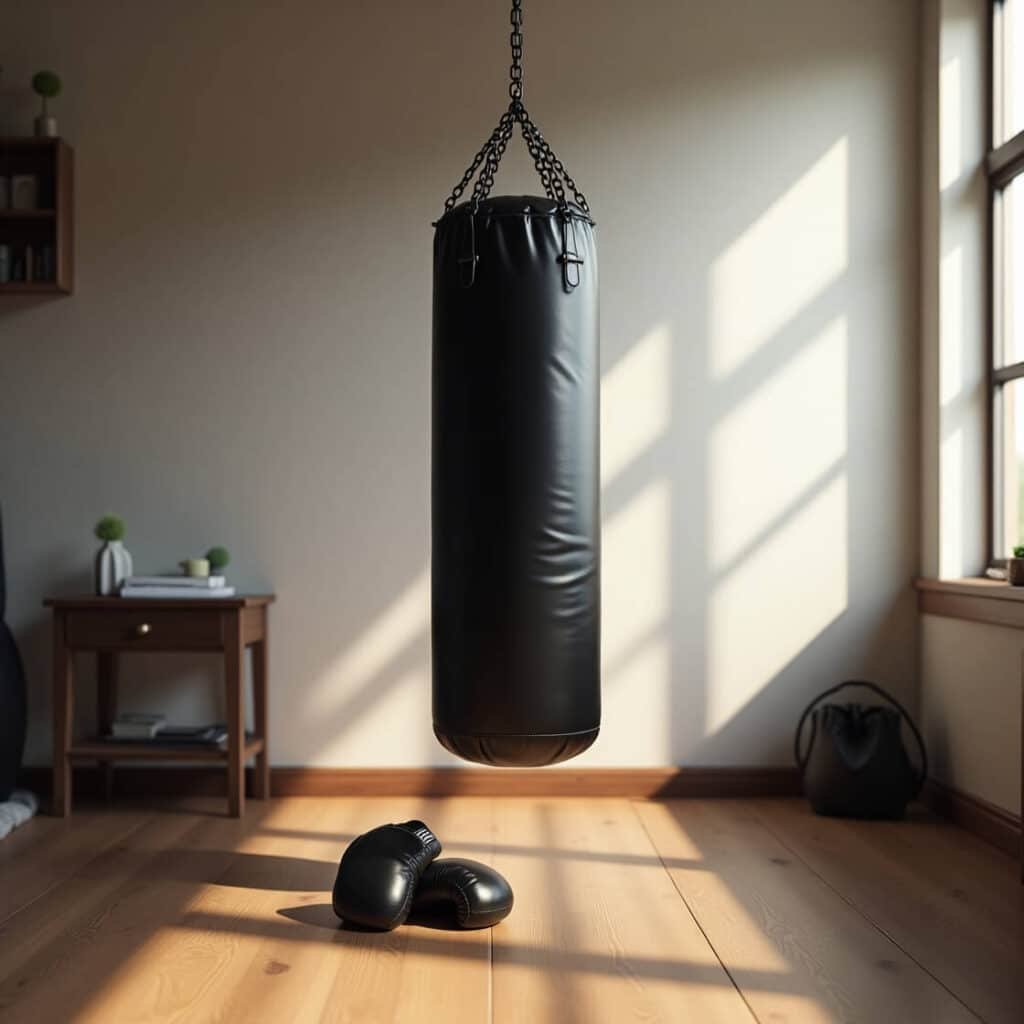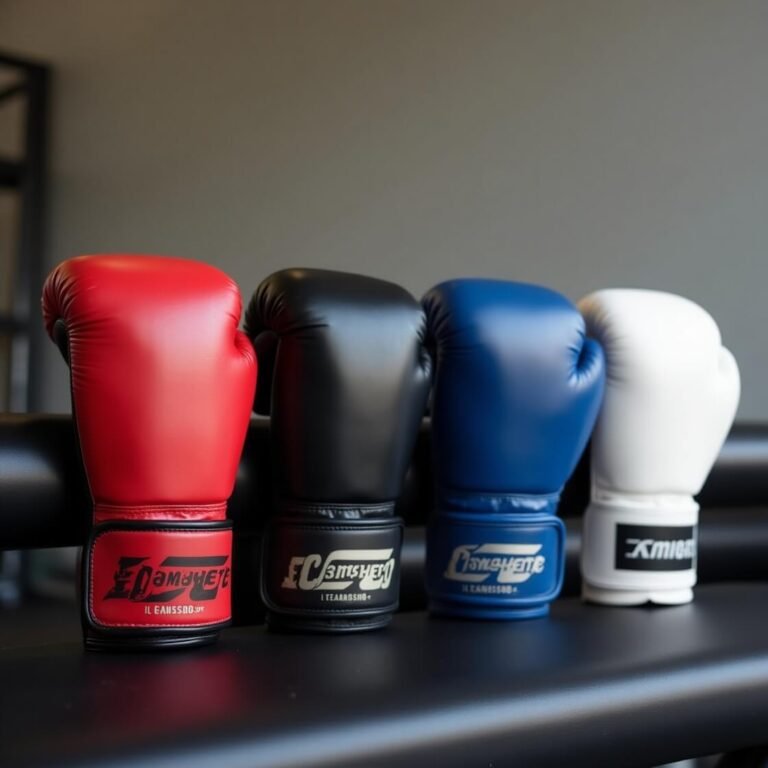Stepping into the world of boxing can feel overwhelming at first. Between the punches, gear, slang, and gym talk, there is a lot to pick up. That is why we put together this beginner friendly glossary of boxing terminology for beginners.

Whether you are training at home or just starting at a boxing gym, understanding these terms will help you feel more confident and connected in your training.
Punch Terminology for Beginners: Names and Numbers
Most boxing coaches and classes use a numbered system for punches. It is essential, as a beginner, to understand this boxing terminology, as the punch names and their assigned numbers are used frequently in combos and instructions.
Common Punches:
- 1 – Jab: A straight punch with the lead hand
- 2 – Cross: A straight punch with the rear hand
- 3 – Lead Hook: A hook thrown with the lead hand
- 4 – Rear Hook: A hook thrown with the rear hand
- 5 – Lead Uppercut: An upward punch with the lead hand
- 6 – Rear Uppercut: An upward punch with the rear hand
Related reading: How to Throw a Proper Jab
Learn more: Boxing Combinations for Beginners
Boxing Gear Terminology for Beginners
Boxing uses specific gear for training and safety. Here is some beginner boxing terminology you will hear often and what they mean.
Gloves
- Training Gloves: All purpose gloves for bag work, mitts, and light sparring
- Bag Gloves: Light gloves made for heavy bag training
- Sparring Gloves: Heavier gloves designed to protect both fighters during sparring
- Velcro Gloves: Easier to take on and off, ideal for solo training
- Lace Up Gloves: Traditional gloves with better wrist support, usually used in fights
Explore more: Best Boxing Gloves for Beginners Under £50
Compare options: Velcro vs Lace Up Gloves
Hand Wraps
Used under gloves to protect the knuckles and wrist joints. Hand wraps are a key part of boxing terminology for beginners and essential for all levels of boxers.

Related Reading: Boxing Hand Wraps – A Beginner’s Guide
Mouthguard
Protects your teeth and jaw during sparring. Every boxer should have one for sparring.

We highly recommend investing in a solid mouthguard; take a look at our great pick for quality and price!
Pads
Pads are an important piece of boxing gear terminology for beginners. They are used by coaches to help boxers practice combinations and accuracy.

Heavy Bag
A hanging bag used for solo training, power punching, and conditioning. A great way for beginner boxers to train efficiently.

Related Reading: How to Use a Heavy Bag Effectively
Common Boxing and Sparring Beginner Terminology
These phrases are often used in gyms, during drills, or when receiving feedback from coaches or partners. Understanding this boxing terminology as a beginner will give you an upper hand in communicating with other fighters and your coach.
- Southpaw: A left handed stance, with the right hand and foot forward
- Orthodox: A right handed stance, with the left hand and foot forward
- Guard: Your defensive position, keeping your hands up to block punches

- Slip: A defensive movement where you avoid a punch by moving your head to the side
- Roll: Also known as “ducking,” used to avoid hooks by bending at the knees
- Parry: A small deflection of a punch using your hand
- Clinch: When boxers tie up at close range to avoid punches or reset the action
- Feint: A fake movement meant to trigger a reaction from your opponent
- Break: A command used by referees or coaches to separate boxers during clinch or close contact
Want to learn more? Read: Beginner Boxing Mistakes and How to Fix Them
Practice defence with: Shadowboxing for Beginners or Boxing Defence Basics
Bonus: Slang You Might Hear in the Boxing Gym
Slang is part of boxing terminology for beginners that often gets overlooked. These informal phrases describe actions or conditions you might encounter in the gym:
- “Eat a shot”: Taking a punch without defending
- “Gas out”: Running out of energy or stamina
- “In the pocket”: Fighting at close range
- “Work the body”: Focus punches on the ribs and stomach, not the head

Final Thoughts on Boxing Terminology for Beginners
By learning this boxing terminology for beginners, you will gain confidence in your training and communication with coaches. Bookmark this guide and refer back to it as you grow your skills.

Ready to level up? Check out our guide to Boxing Training at Home or dive into Boxing Combinations for Beginners to put these terms into action.



